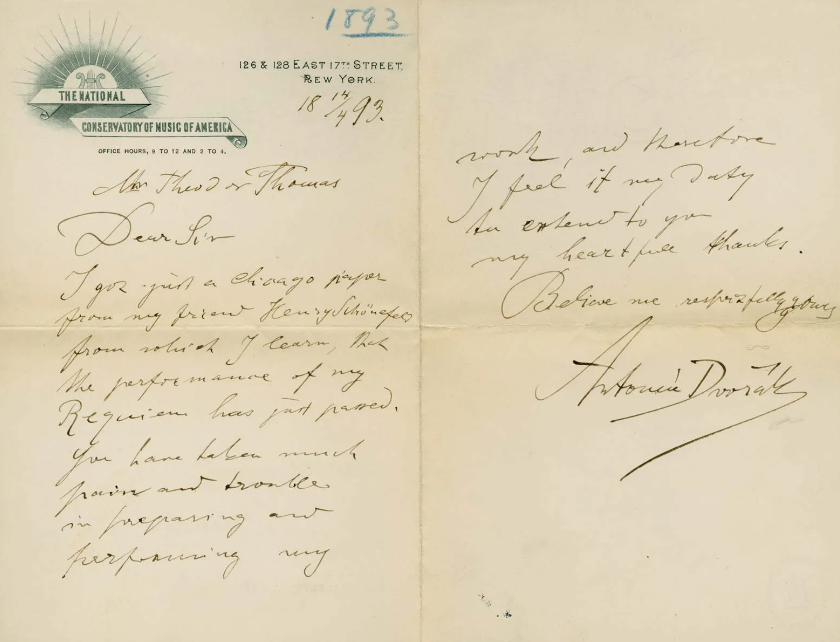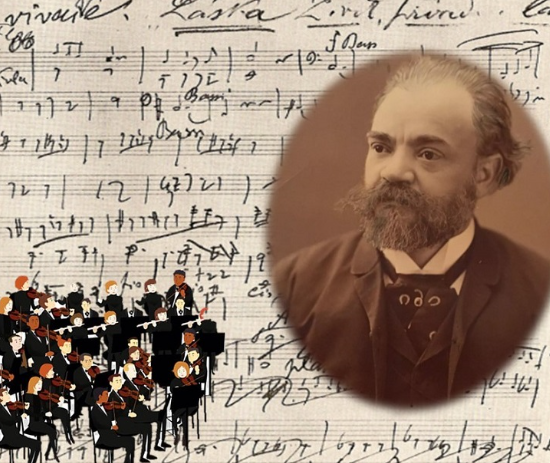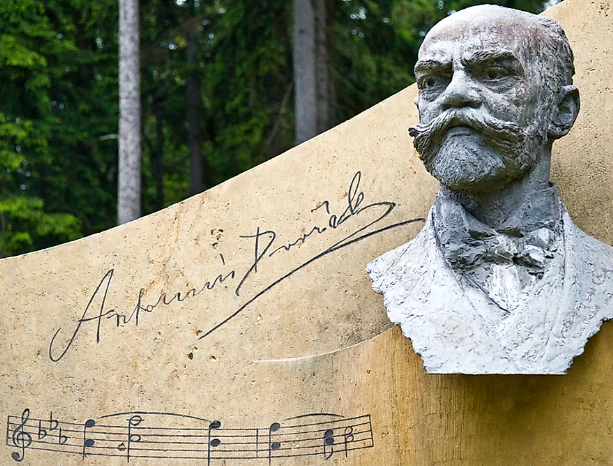Born just north of present-day Prague, Dvořák showed a talent for music at a young age. It is said that his music had the ability to convey emotion in a way that captivated listeners.
At 12, Dvořák began studying harmony, piano, and organ, the focus of his work directed at Polkas during this time. Eventually, his father enrolled him at the Institute for Church Music in Prague at the suggestion of a teacher, where he completed a 2-year program.
Dvořák began to tutor throughout the 1860s, where he met sisters Josefina and Anna Čermáková. His unrequited love for Josefina is said to have inspired Cypresses (1865). After buying a summer house in the small village of Vysoká, Dvořák spent every summer there. This house is where Dvořák composed some of his best-known works.
Later, his friendship with Johannes Brahms would further excel his works, including Slavonic Dances (1878), a piano duet that attracted worldwide attention to himself and his country’s music. In 1890, Tchaikovsky arranged for Dvořák to perform two concerts in Moscow. Following this successful accomplishment, he was declared an honorary doctor of music at the University of Cambridge.
In 1885, New York established the National Conservatory of Music of America. Just 7 years later, two years after his performance in Moscow, Dvořák accepted an offer to become the Conservatory director. During his time in the U.S., he gained a new perspective and held a great interest in African American spirituals. This new form of melody influenced Dvořák’s later work and was thought to have inspired his best-known work, Symphony No. 9 in E Minor (From the New World) produced in 1893.
However, this was not enough to keep him in the New World. He returned to Bohemia in 1895, continuing to write several string quartets, symphonic poems, and his last three operas. Dvořák had a great talent for melody and including Czech culture in his music offered a delightful contrast to some of his contemporaries. After having composed over 400 compositions in his lifetime, Dvořák died of a stroke in Prague on May 1, 1904.
Written by Kelsey McDade
Lloyd-Jones, David Mathias, ‘Works of Antonin Dvorak’, Britannica, https://www.britannica.com/biography/Antonin-Dvorak/Works, (Accessed March 7, 2023).
Beveridge, David R., ‘Antonin Dvorak: His Life, His Music, His Legacy’, Dvorak American Heritage Association, https://www.dvoraknyc.org/bio, (Accessed March 16, 2023).



